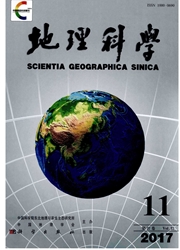

 中文摘要:
中文摘要:
分析了在经济转型背景下中国能源利用强度变化,强调经济转型背景下经济全球化、市场化和区域分权对能源强度的影响。中国省区能源消费差异显著,沿海省区能源效率较高,能源强度较低,而中西部省区,尤其是能源资源富裕的省区能源强度偏高。统计分析结果表明,伴随经济转型的市场化、经济全球化以及分权化等制度性因素是影响能源利用强度的重要因素,中国省区技术水平、产业结构、自然条件以及能源消费结构与消费倾向同样显著影响中国能源利用强度。但是高能耗省区与低能耗省区的能源利用强度因素存在一定的差异。在高能耗省区,积极利用外商直接投资、技术创新等可以显著降低能源强度。
 英文摘要:
英文摘要:
China is the second largest energy consumer in the world. With the rapid growth of energy demand, China's energy intensity has been considerably declining during the period of transition. Energy intensity is, however, by no means equal across Chinese provinces. The coastal region on average consumes energy more efficiently than the interior regions. Statistical results reveal that globalization, marketization and decentralization are important factors influencing energy intensity. While the provincial technique level, industrial structure, natural resources and energy consumption structure also signific of these factors on high-energy intensity and low-energy antly influence the energy intensity. However, the impact intensity provinces are different. It is important to induce foreign direct investment and technique innovation in decreasing energy intensity in high-energy intensity provinces.
 同期刊论文项目
同期刊论文项目
 同项目期刊论文
同项目期刊论文
 期刊信息
期刊信息
